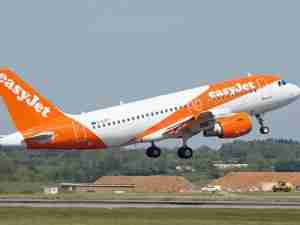Southwest Stock Plunge Drags Down Airlines on Fare Weakness
By: | Jul 21 2016 at 04:44 PM | Air Cargo
Southwest Airlines Co. fell the most in seven years and sent airline shares tumbling with a bleak view that sharper competition will drive down airfares more than in previous quarters.
Prices have been softening all year and the discount carrier has seen particular weakness in tickets sold just before travel over the past several weeks, Southwest Chief Executive Officer Gary Kelly said in an interview Thursday.
“We are in a bit of a declining trend here,” Kelly said. “Things are quite competitive.”
Highlighting the difficult fare environment, Southwest said revenue from each seat flown a mile is expected to fall between 3 percent and 4 percent this quarter. Declines in the closely watched financial gauge known as unit revenue have plagued the industry for more than a year as a supply glut has dragged down prices and led to fare wars in some markets. Investors have shied away from airline stocks absent signs of improvement.
“Down 3 to 4 percent means revenue conditions are deteriorating,” said Savanthi Syth, an analyst at Raymond James Financial, said by telephone. “The last time they talked, they said things would be improving sequentially. We were expecting down 1, so down 3 to 4 is worse than we were expecting and worse than a lot of people were expecting by quite a bit.”
Tumbling Shares
Southwest tumbled 11 percent to $37.32 in New York, the biggest drop since Jan. 23, 2009. The Bloomberg U.S. Airlines Index fell 4.75 percent, the most in three weeks.
The Dallas-based carrier isn’t likely to make any changes to planned growth the rest of this year, but may consider trimming capacity in 2017 if the trend continues, Kelly said on a conference call. Reducing the number of seats offered for sale should boost unit revenue. Southwest’s planned expansion for the first two months of 2017 now is about 6 percent.
“Our goal is to have positive unit revenue every single quarter and certainly for the year,” he said. “We’re falling short of that right now for the third quarter. That will give us cause to rethink our plans” for next year.
‘Quite Competitive’
Delta Air Lines Inc. and United Continental Holdings Inc. are also forecasting that unit revenue will fall again this quarter from a year earlier. American Airlines Group Inc. reports results Friday.
Southwest is increasing capacity between 5 percent and 6 percent in 2016 and has said expansion will be more modest in the next two years. In the second quarter, the carrier’s yield, or average fare per mile, dropped 4.6 percent.
“Seats are being offered for sale out there and, if prices aren’t right, you don’t have any takers,” Kelly said.
Southwest’s guidance means its operating margins will decline almost five percentage points from the second quarter to the third, “well below typical seasonal trends and surpassed only by a single observation in the past eight years,” said Jamie Baker, an analyst at JPMorgan Chase & Co.
Rising Costs
Southwest’s operating revenue for each passenger flown a mile, a key measure for investors, rose 0.6 percent in the second quarter, matching the carrier’s outlook. The airline said it expects costs for each seat flown a mile, a measure of efficiency, to increase 2 percent this quarter and 1 percent for the full year, excluding fuel and special items.
The carrier said second-quarter earnings excluding one-time items rose to $1.19 a share Thursday, missing the $1.21 average of analyst estimates compiled by Bloomberg. Revenue increased 5.3 percent to $5.38 billion, compared with the $5.4 billion expected by analysts.
The airline paid $1.81 a gallon for fuel in the second quarter, compared with an average spot market price of $1.31. Southwest said in July that it is adjusting future fuel hedging—purchase contracts designed to lessen the impact of price swings—to account for current lower rates. Spot prices fell 28 percent in the second quarter from a year earlier.
Southwest last month postponed delivery of 67 aircraft by as long as six years. That will help the carrier control capital spending as it focuses on technology updates over the next five years to bolster pricing, operations and flight scheduling. The delays enable Southwest to defer $1.9 billion in spending for planes into the next decade.
An equipment failure, followed by collapse of a backup system, was responsible for flight disruptions across Southwest’s system Wednesday, Kelly said. The “vast majority” of the airline’s operating systems were operating by early Thursday, he said. Southwest canceled 335 flights Thursday after grounding about 700 flights Wednesday. Lost bookings from the outage might cost Southwest as much as $10 million, Kelly said.











